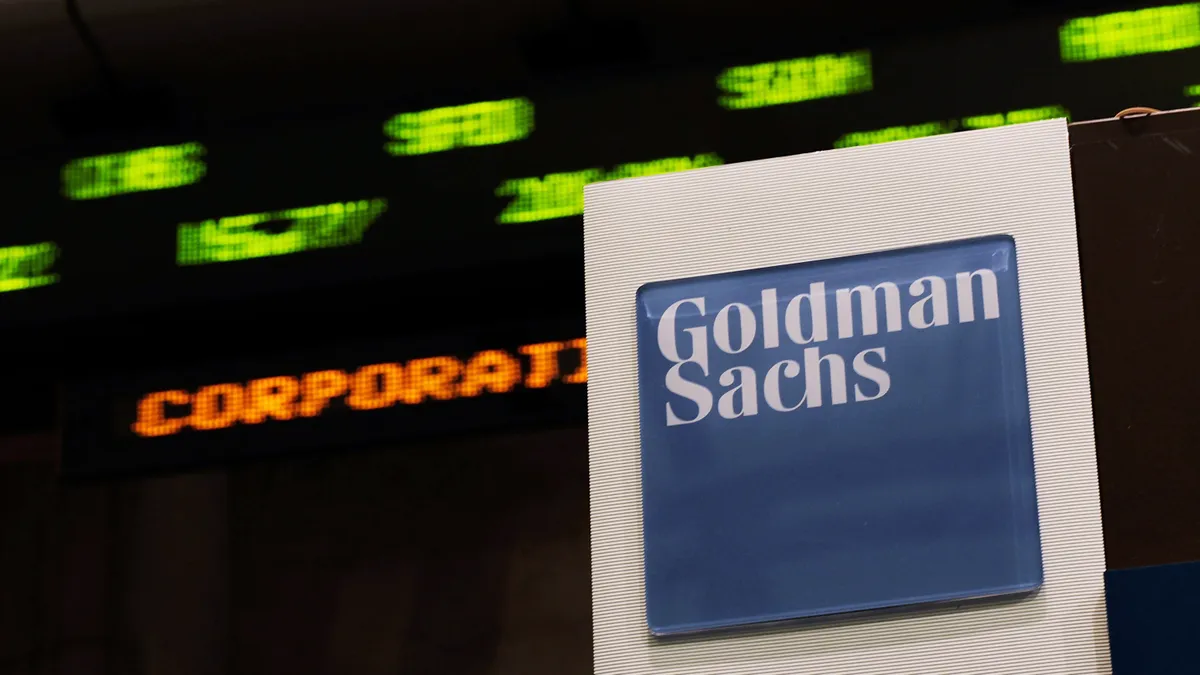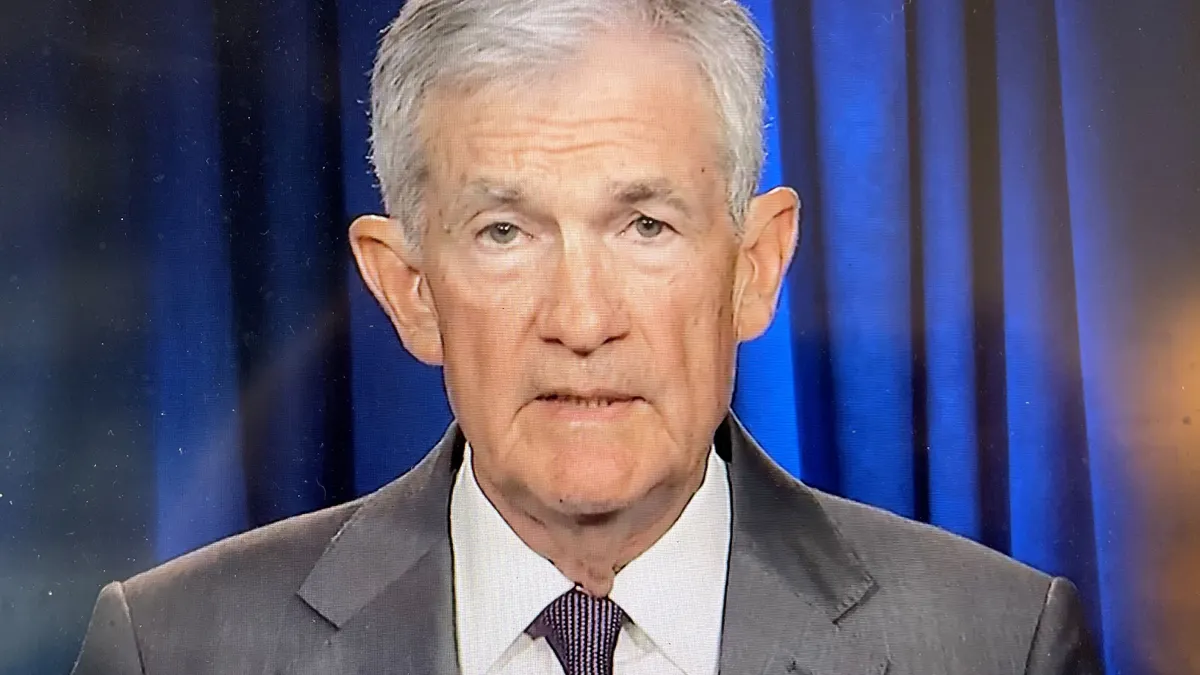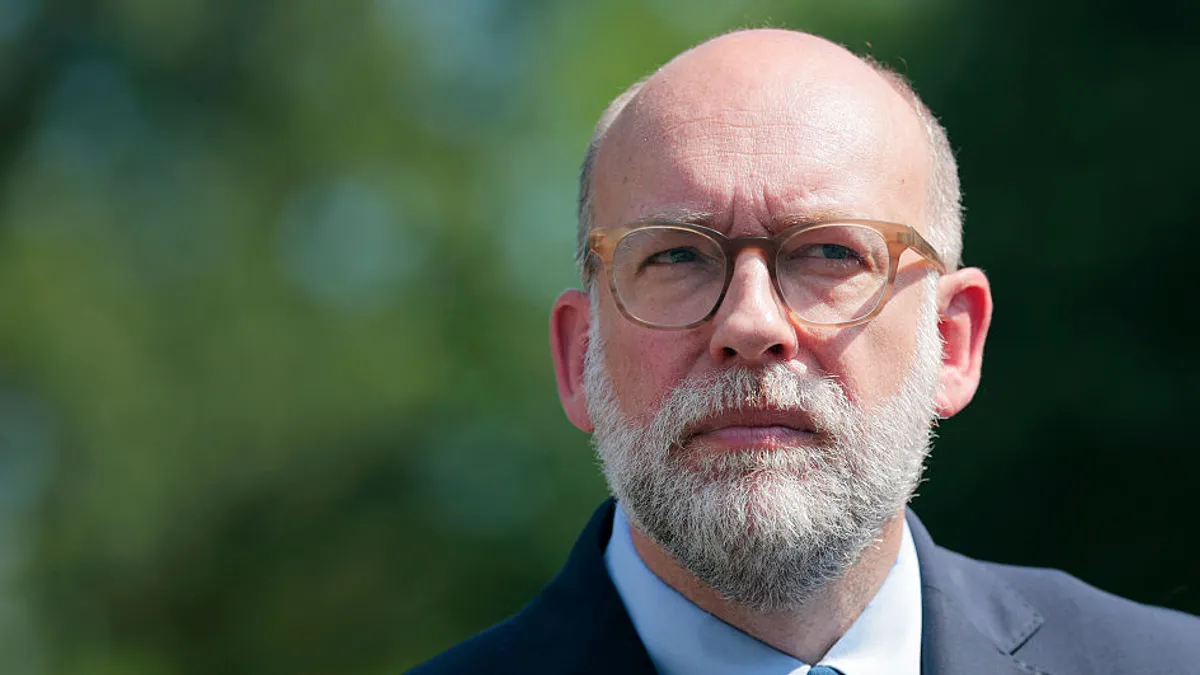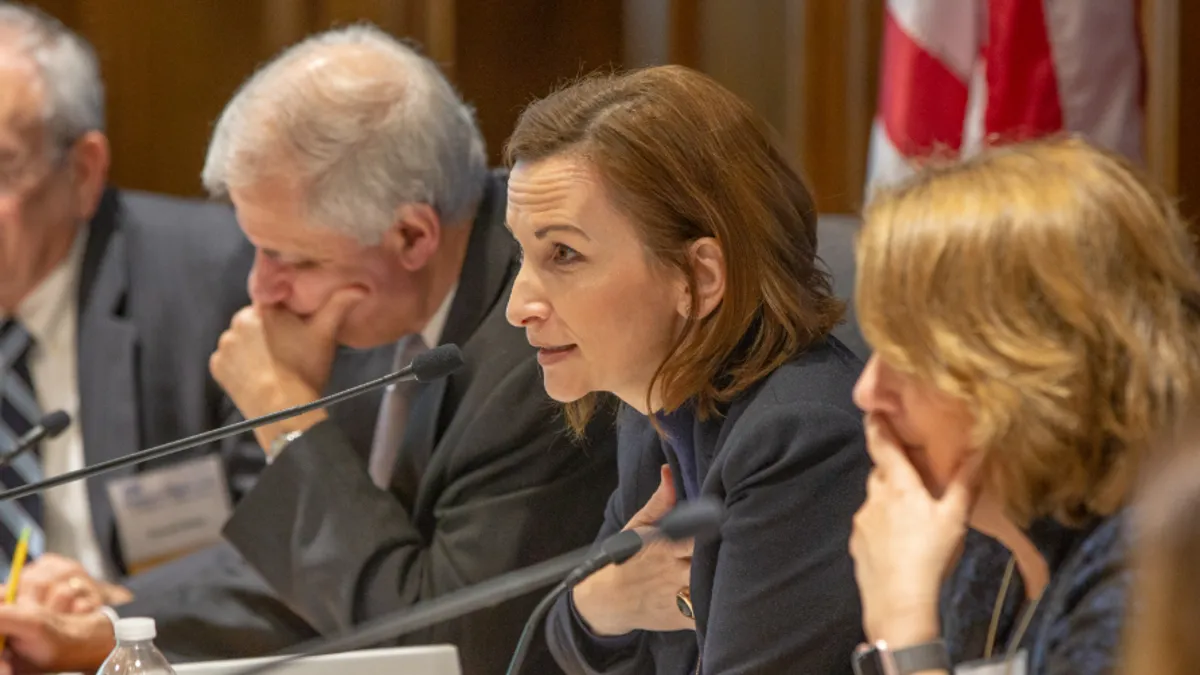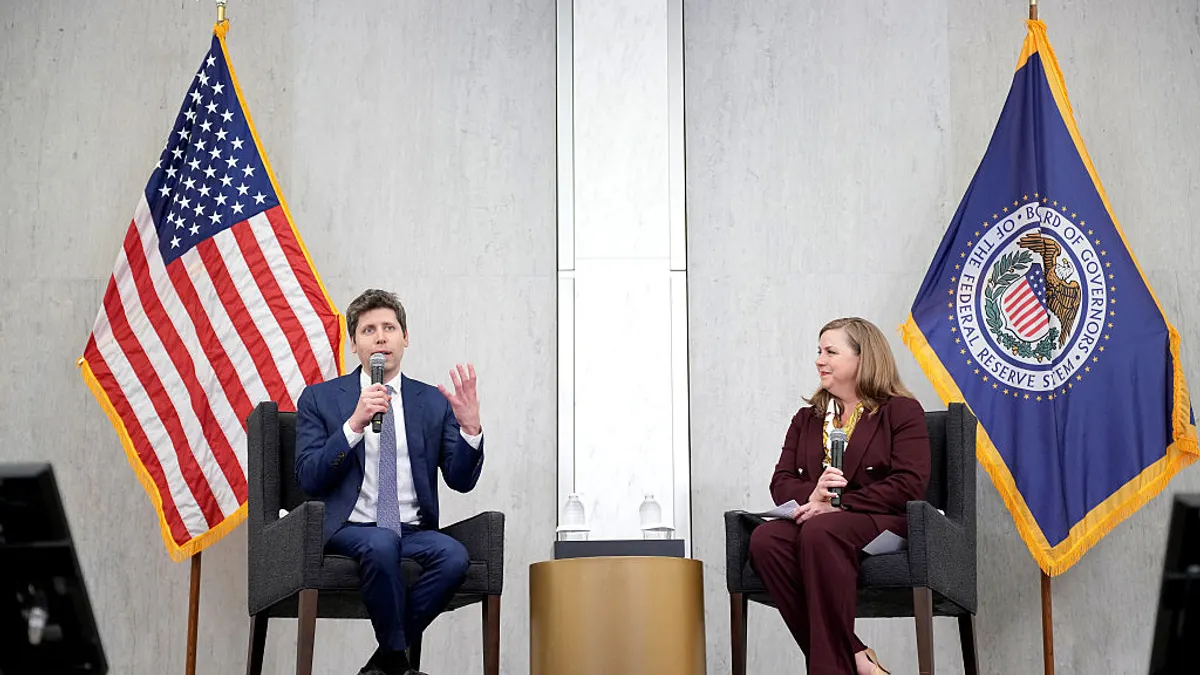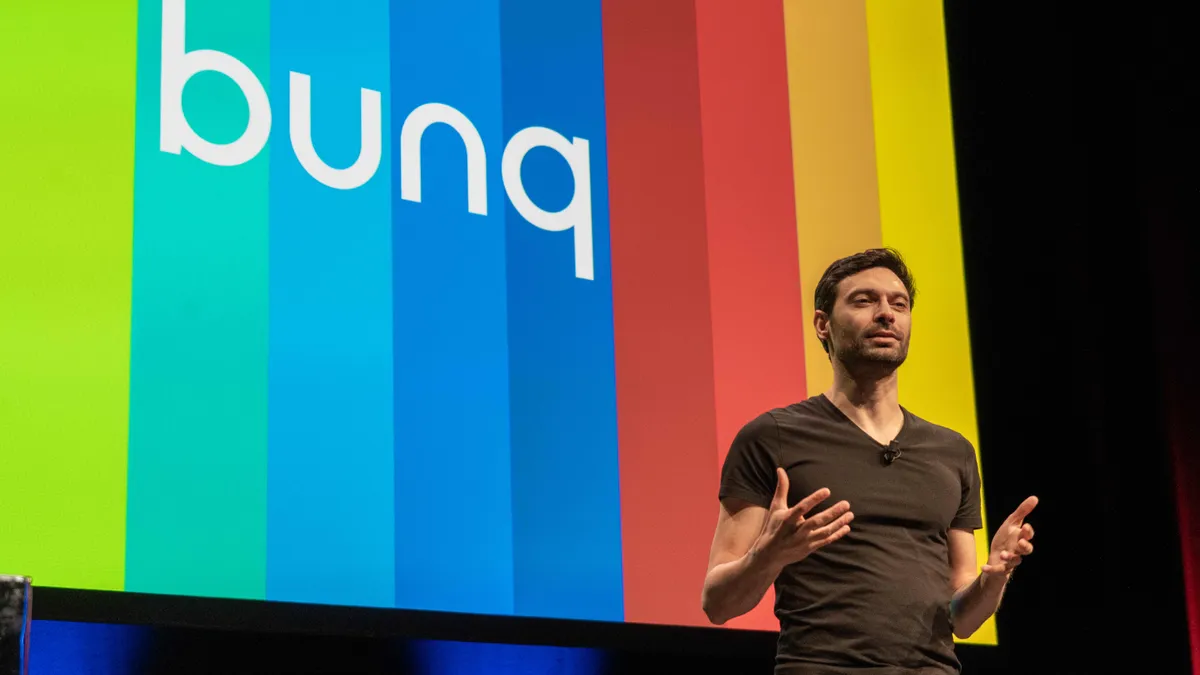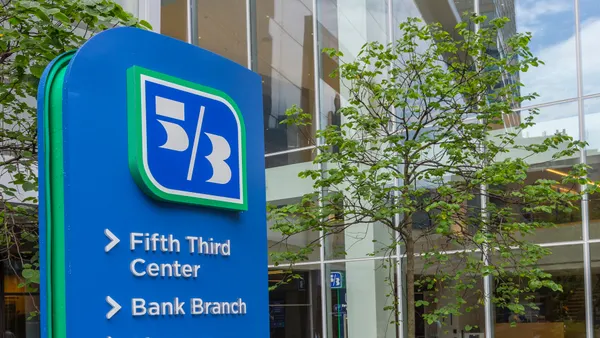Goldman Sachs CEO David Solomon suggested a four-pronged plan meant to position small businesses to better weather economic hurdles such as inflation, labor shortages and supply-chain logjams, according to an opinion piece published Wednesday by CNBC.
Solomon, whose bank’s business education program is holding a summit this week in Washington, is asking Congress to consider new programs to help small businesses compete alongside larger ones to retain and develop talent. Lawmakers could bolster paid leave programs and create new tax credits to support small businesses' hiring and retention efforts, he suggested.
Solomon also recommended Congress allow community development financial institutions (CDFIs) to provide more credit to small businesses in underserved communities. He cited a survey of more than 1,500 graduates of Goldman’s “10,000 Small Businesses” program indicating that nearly half (48%) of Black small-business owners say they expect to take out a loan or line of credit for their business this year but that only 19% are "very confident" in their businesses' ability to access capital.
The CEO also suggested Congress expand programs meant to reduce the cost of child care while boosting access in so-called “childcare deserts.”
Last, Solomon wants Congress to broaden the opportunities available to small businesses — especially those owned by women and nonwhite entrepreneurs — that want to compete for government contracts. The proportion of small businesses providing common products and services to the federal government dropped by 38% between 2010 and 2019, Solomon wrote. At the same time, 79% fewer new small businesses competed for the contracts, he added.
Solomon pitched that all four reforms could be managed through a reauthorization of the Small Business Administration (SBA), rather than trying to push each change individually.
The SBA has taken its share of lumps over the past two years. While it approved 11.8 million forgivable loans as part of the early COVID-era Paycheck Protection Program (PPP), it also drew criticism from the Justice Department and others over the amount of fraud linked to the program. Many participants also found delays and hurdles in the process from nearly two dozen midstream changes in guidance.
“The pandemic created a slew of new challenges for small businesses, but the federal programs they rely on aren't well-equipped to help,” Solomon wrote Wednesday. “It's time to give those programs an upgrade so small businesses have the tools they need to navigate the turmoil ahead.”
For CEOs, recession may not be a given
As for what lies ahead, 93% of respondents in Goldman Sachs’ survey said they are concerned the U.S. will enter a recession in the next year. Bank CEOs are arguably less certain that that is a given.
“Nothing in the data that I see signals that the U.S. is on the cusp of recession,” Citi CEO Jane Fraser, said during her bank’s second-quarter earnings call last week, according to The New York Times. “While a recession could indeed take place, it is highly unlikely to be as severe as others we have seen.”
Morgan Stanley CEO James Gorman in May adjusted his prediction to say a recession was 50% in the next 18 months. “It’s a challenging market, but I think it is important to say that it’s not 2008 complicated,” he said last week.
PNC CEO William Demchak, meanwhile, told American Banker last week he is “personally confused about all the concern that sits out there on banking reserves and the coming recession.”
“I don't think there's any cliff involved,” he said. “The trouble ahead lies somewhere in the middle of next year, not any time in the next six months.”
Several of the U.S.’s biggest banks over the past week reported that they had set aside millions of dollars to add to their reserves — a reversal from the past handful of quarters.
“We’re going to start locking in and protecting our downside,” Citizens Bank CEO Bruce Van Saun said, according to American Banker, adding he aims to “thread the needle” between a mild recession that may leave “a little money on the table” and a more severe downturn.
Solomon’s own earnings-call comments focused not on the prospect of recession but on inflation. “We see inflation deeply entrenched in the economy, and what’s unusual about this particular period is that both demand and supply are being affected by exogenous events, namely the pandemic and the war on Ukraine,” he said Monday.
Three-quarters of Goldman survey respondents said inflation is hurting their businesses' financial health. Meanwhile, 89% of small-business owners inflation, supply chain issues, and workforce challenges are negatively affecting their business. And four in five said inflationary pressures have risen over the past three months. However, 65% said they are optimistic about the financial trajectory of their business this year, Solomon noted in his op-ed.
This wouldn’t mark the first time Solomon has launched a policy-change initiative — or, in this case, the desire for one — through a published opinion. His bank’s 10-year, $750 billion sustainability commitment, launched in 2019, began as an op-ed in the Financial Times.


